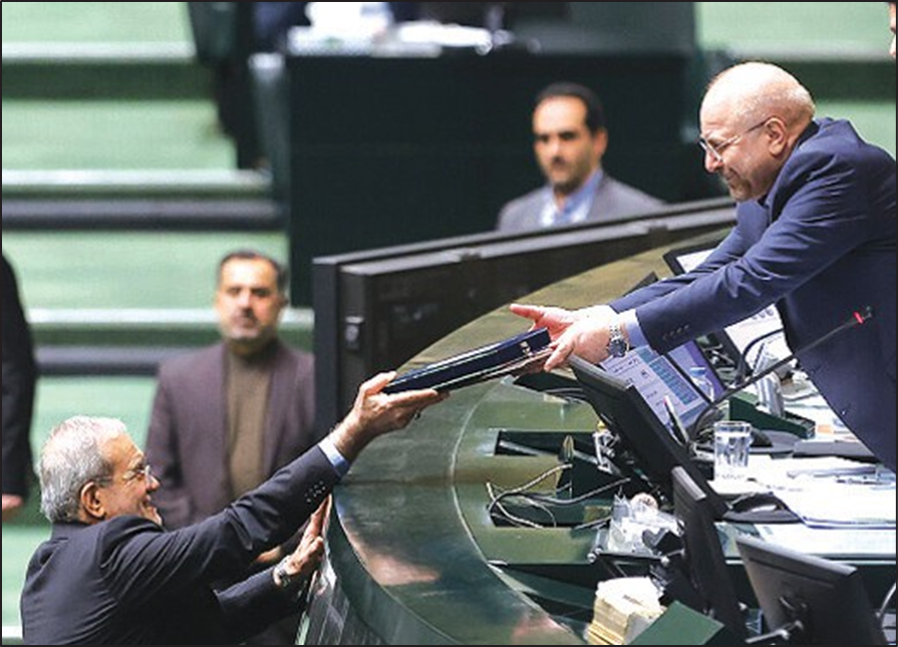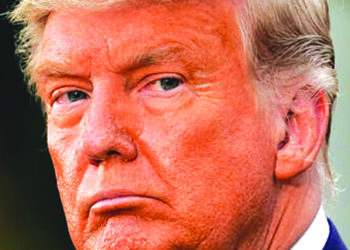That has caused a political storm in both Iran and Israel since each country sternly denies ever doing business with the other.
Actually, there were a number of instances of Iran-Israeli trade in the past. Iran even bought Israeli weapons during the 1980-88 war with Iraq when Israel was happy to see Iraqis getting killed. And American pistachio growers fought for many years to get the Israeli government to block imports of Iranian pistachios disguised as Turkish by Israeli importers.
The latest case involves the sale of an Israeli ship to Iran. The US State Department said that in September 2010, Tanker Pacific, a Singaporean subsidiary of the Israeli Ofer Holdings Group, “provided a tanker valued at $8.65 million to the Islamic Republic of Iran Shipping Lines (IRISL).” As a result, the Israeli company was sanctioned last week and will be barred from securing US trade financing, obtaining US bank loans and receiving US export licenses.
The sanction has created a stir in Iran and Israel, both of which flatly deny the accusation of business dealings.
Mohammad Nahavandian, chairman of Iran’s Chamber of Commerce, Industries and Mines (ICCIM), said, “Based on the laws of the country, any kind of trade or economic transaction with the Zionist regime and its affiliated firms is against the law. Iran regards Zionist firms and their policy makers as the main factors behind economic sanctions and refrains from making any deals with them.…
“News about activities of Zionist [Israeli] firms in Iran is a new game started [by Western powers] in reaction to the willingness of certain countries to establish economic ties with Iran,” he said.
The Israelis have also denied the US accusation. “We have never sold ships to Iran,” the Israeli company said in a statement. It said the tanker was sold to a Dubai company, Crystal Shipping, not IRISL. Ofer says there has been a misunderstanding, adding that Israeli officials will be investigating the sale.
One of the richest families in Israel, the Ofers control one of the largest Israeli investment firms. There has been some confusion between Ofer Brothers Group, run by Yuli Ofer, and Ofer Holdings, which is run by his brother, Sammy Ofer, and nephew, Idan Ofer. Tanker Pacific is a subsidiary of Ofer Holdings.
The US responded to the claims by Ofer Holdings by saying it is “responsible for the conduct of their subsidiary.” State Department spokesman Mark Toner last week said, “We did considerable due diligence in checking out these claims. And what we found is that Ofer Holdings Group is the parent of a company called Tanker Pacific, and that’s the company that actually sold this tanker to the Iranians. And the company and its subsidiary, frankly, has failed to do proper due diligence and to prevent this transaction. So they’re responsible.”
Tanker Pacific admitted to having dealings with Iran, but said “All such activities were fully permitted under international rules and regulations including those emanating from the US, EU and UN.” In its statement, the company said it had informed the United States in January that it had ceased transporting “oil and petroleum product cargoes from and to various ports in Iran for our [international] customers,… even though this continues to be a legitimate trade.” Israeli media reported that international shipping records showed seven of the Israeli firm’s tankers docked in Iran 13 times over the last decade.
The reports left both countries with black eyes as a gap between rhetoric and reality opened wide.
With the outrage over Israeli dealings with Iran, some Israeli media outlets suggested Ofer might justify the dockings by claiming involvement in “intelligence missions.” Other sources have said the company had authorization from Israeli Prime Minister Benjamin Netanyahu, but a spokesman flatly denied the claim.
The other companies named under the recent US sanctions are Petrochemical Commercial Company International (registered in Jersey, a semi-independent island off Great Britain); Royal Oyster Group (UAE); Speedy Ship (UAE/Iran), Associated Shipbroking (Monaco), and Petroleos de Venezuela (PDVSA).
The sanctioning of that last firm prompted an officially sponsored uproar in Venezuelan against the North American bullies, with protest demonstrations in the streets led by the regime.
According to a statement read by Venezuelan Foreign Minister Nicolas Maduro, Venezuela will be evaluating the extent that “these sanctions affect the operations of our national oil industry. Venezuela reserves the most proper response to this imperialist aggression.”
Many analysts, however, say the sanction is no big deal, “The sanctions would have only modest real impact on today’s undertakings by PDVSA,” said energy consultant and former PDVSA executive Gustavo Coronel. Because of sanctions, the company can no longer engage in US government contracts, import-export financing and export licenses for sensitive technology, but PDVSA will still be allowed to sell oil to the US and deal with its US subsidiaries. PDVSA owns CITGO.
“The real significance [of the sanctions] has to be found in the psychological, political effect of the measure,” says Coronel. “It constitutes the first real move of the Obama government against Chavez’s Venezuela.”
Despite tensions between their respective governments, the US remains a main buyer of Venezuela’s PDVSA. The company has sought to broaden its clientele under Chavez, exporting to other countries like China as well, but the United States remains its chief market.
Many abroad object to US sanctions as imposing US law on foreigners. Actually, sanctions only give foreign firms a choice—limit your trade with Iran or find that your dealings in the US market are limited. No firm can “violate” sanctions; all a firm can do is “trigger” sanctions by their dealings with Iran. But no foreign businessman is subject to a fine or imprisonment for trading with Iran.



















